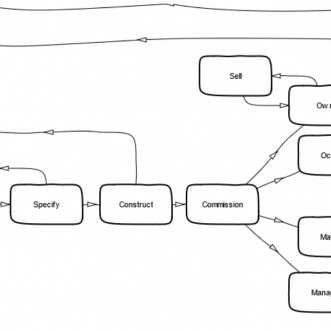October 5, 2020
We’ve been brainwashed into thinking that changes have to be big, hairy, audacious, and fast. Sometimes that is what’s needed. But most often it’s not. Long-term change takes a different kind of energy. A crash diet is disruptive and hard to stick to, and if you’re not careful leads to the loss of more muscle than fat. Much better to lose half a kilo a week for a year, changing your eating habits along the way, so you live better for longer.
On average, a business has around 50 business processes that make up its Customer Experience Score, depending on how many different services are on offer. It’s tempting to make that a big deal, to throw everything up in the air while change is going on. To disrupt the status quo before you have anything to put in its place. A ‘big bang’ is dramatic, but as we all know, it rarely leads to real change.
It would be possible to re-engineer a business in 6 months, but I’ve always found it better to go for a steady ‘one-process-a-week’ approach.
I usually start with the simple, uncontested, but often forgotten process of opening and closing for business each day. It’s a good warm-up to get everyone used to working together, an introduction to the notation, and a gentle way to get thinking about how much what happens every day can contribute to the process of making and keeping promises to clients:
When does the day really start? When does it really end? Who opens up? Who closes up? When are the phones tested? When is the internet tested? What happens if they fail? Where do the kitchen provisions come from? How do we make sure we don’t run out before a client meeting? How do you set the scene for visitors? How are they welcomed?
Each week, my job is to ask the stupid questions, get people thinking about the things they take for granted, hold the processes to account against the business’s Promise of Value. In essence to get the business delighting its clients on purpose, systematically, repeatedly.
Once we’ve started there’s a rhythm to it. Review last week’s captured process (always wrong the first time round), then start the next most important process. We move forwards steadily, with the simple aim of making the business work the way you really want it to. The way you would want it to work if you were a client.
Like dieting, the benefits accrue right from the beginning. The change in lifestyle is gradual and relatively painless, relatively easy to stick to. Until suddenly, by the end of a year, you realise you’ve made a radical change. You’re a new business, more confident, more energetic, more fun to be around and able to look forward to the expected lifetime of a Galapagos tortoise, rather than a hare. And looking back, it didn’t seem to take long at all.
Making deep, lasting change is a marathon, not a sprint. And even marathons go more quickly than you think.









